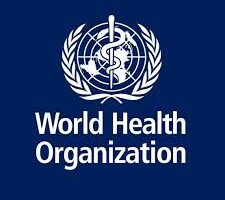Governor Nasir el-Rufai of Kaduna state on Tuesday presented the 2023 draft budget of N370 billion to Kaduna State House of Assembly, while maintaining the 60% capital and 40% recurrent expenditure ratio.
The eight and final budget of the el-Rufai administration is 21.82% increase from the 2022 revised appropriation of N303.99 billion.
The governor while giving a breakdown of the budget proposal said N242.21 billion is proposed as capital expenditure and N127.7 billion as recurrent expenditure.
“The capital to recurrent ratio of 65.5% to 34.48% reflects our consistent commitment to investment over consumption.
“The 2023 estimates maintain focus on human capital development. Our proposal allocates 45.34% of the budget to education and health. The allocations of 29% to the education sector and 16.05% to health leave no doubt about our abiding commitment to human capital development. The 2023 budget estimates make provisions for continued pro-poor interventions in nutrition, health care, skills acquisition and empowerment funds for women, youths, and vulnerable groups,” he said.
El-Rufai said his budget proposal along with the provisions for the Social Investment Programme will make available N11.32 billion intervention for the pro-poor in the state, representing about 3% of the proposed budget.
He added that the budget estimates assume that crude oil prices will stabilise around $70 per barrel and that the official exchange rate will be around N435.57 to the dollar.
“Uncertainties persist in the global economy. Promising signs of a sustained recovery from Covid-19 have been replaced by fears of inflation and recession in the major economies. This economic climate may affect demand for Nigeria’s main export, petroleum, with consequences for the exchange rate, prices and general economic performance,” he said.
El-Rufai told the lawmakers that the budget concludes eight years of determined effort to make lives better by putting people first.
‘’We have implemented empowerment policies, respecting people, which is enough to free them from dependence on those who insert themselves between the treasury and the people. We have diligently sought to promote equal opportunity, improve human capital development, build infrastructure, attract new businesses, support existing ones and run a system that promotes the ease of doing business.
‘’We have reformed government, while celebrating what was good in the past, honouring people and completing inherited projects. We have done our best amidst the continuum that disciplined governance should be,’’ he said, while thanking the House of Assembly for its cooperation, noting that the journey has had smooth phases as well as rough junctions.
“We have sent many executive bills over the last seven years, and this House has commendably discharged its duty of enacting vital legislation. This is a big gratitude of the government for the 140 laws so far enacted by this House are proud of our record of governance. We have charted a new path forward. We will be leaving it to our successors to extend, build on and expand our efforts to deliver progressive outcomes for our people.
“The roadmap is clear, anchored on the state development plan and a relentless focus on robust policies and capacity to implement through an efficient public service. This administration has made Kaduna state better and give our successors a strong base from which to carry the baton still further to achieve more for our people,” he said.



